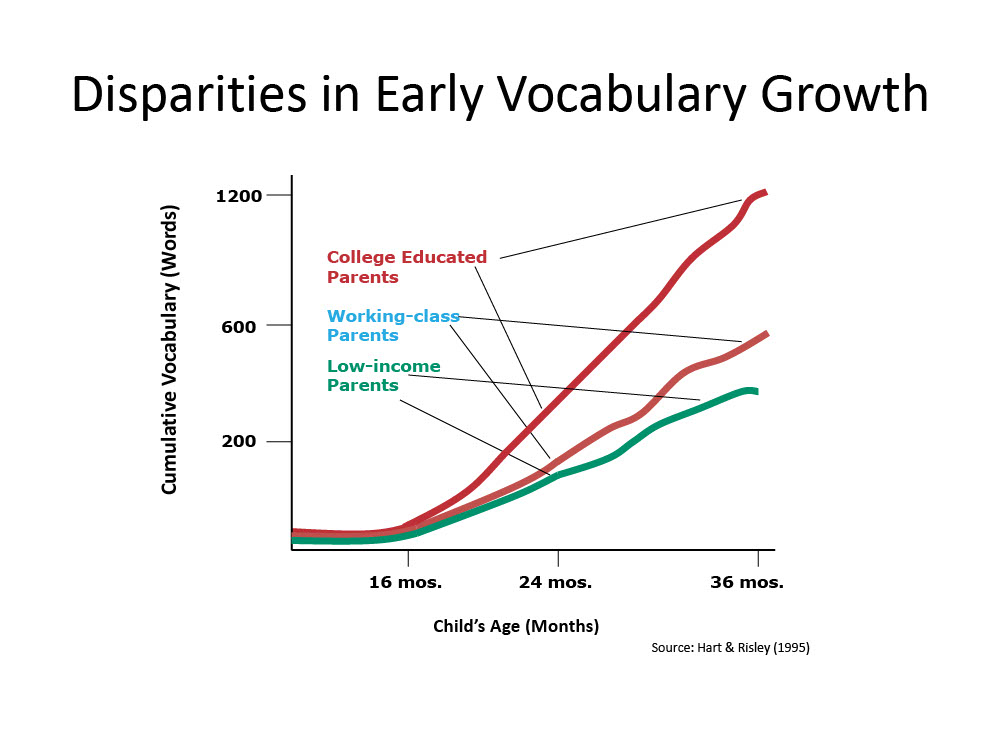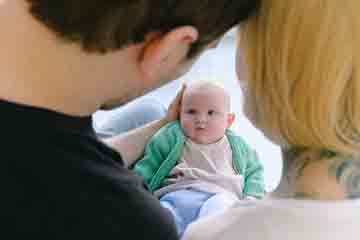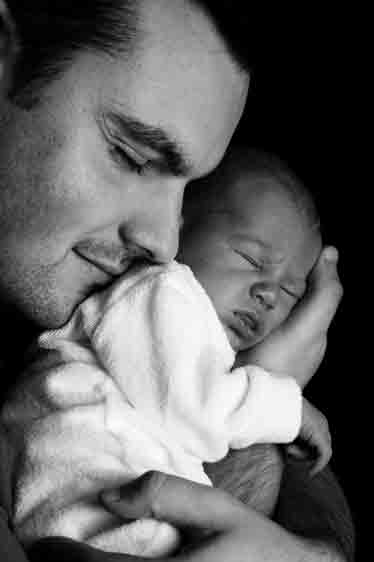THE CHALLENGE
The achievement gap begins at birth
Children born into low-income households are disadvantaged from birth. By the time we are able to measure differences in skills and knowledge, gaps in abilities are already well established. For example, from when they are born, some children hear exponentially more words from their parents and caregivers than other children, and this has enormous effects on their language development, literacy development, and later success in school.

Most adults do not have general knowledge of child development
A recent study from Zero to Three and the Robert Wood Johnson Foundation attempted to understand what a national sample of American adults knows about child development, revealing that more than half of the sample of U.S. voters reported that they know little or nothing about child development, while at the same time nine out of ten believe that knowledge of the topic is important.


Parenting knowledge is not typically available in any formal way to U.S. citizens
There is currently no formal way to prepare people for parenthood.
- Motivated parents may sign up for childbirth and baby care classes when they are expecting.
- Negligent parents may be referred to parenting classes by child services.
- The intervention programs that target parenting knowledge and practices in low-income families — an approach that has been successful, yet costly — only reaches a subset of parents.